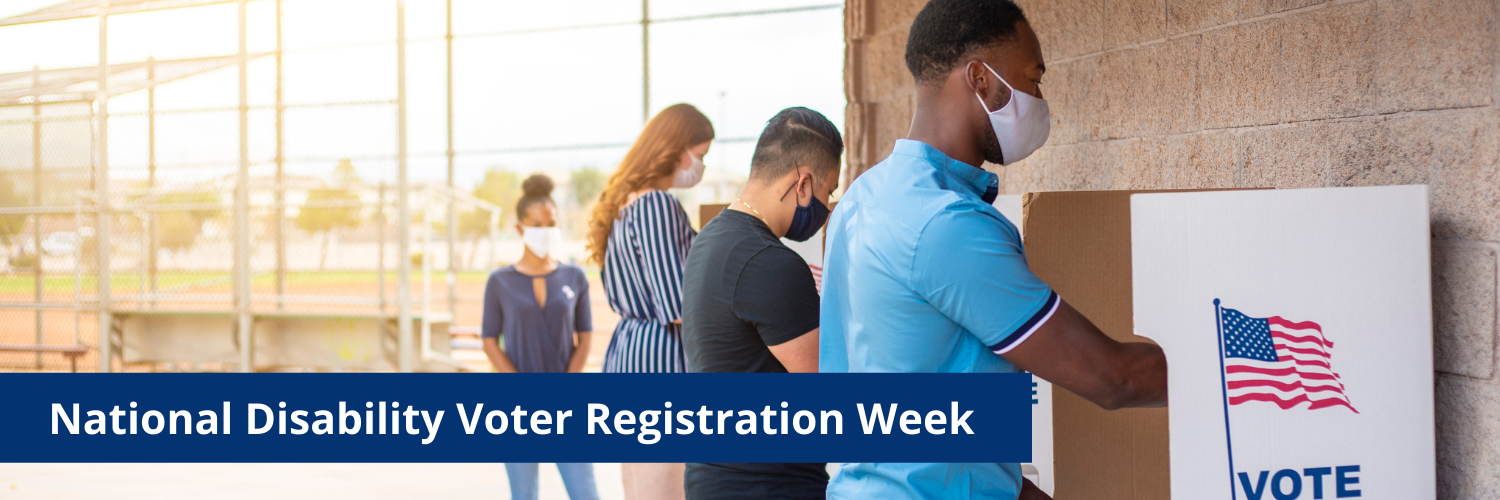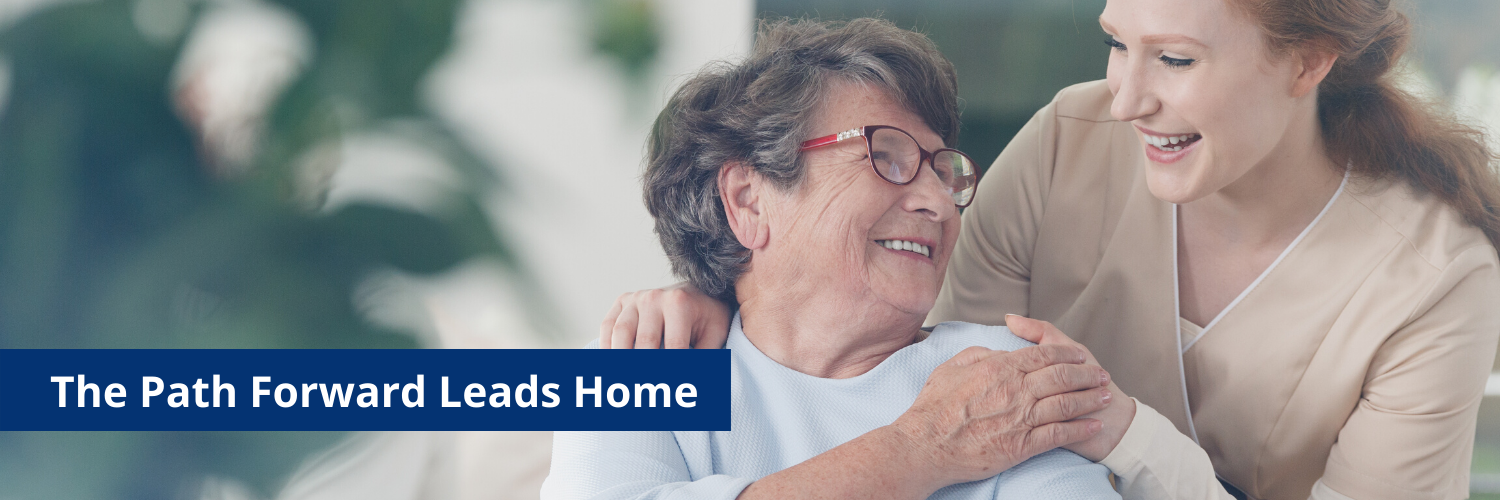| |  | This September, Disability Rights Pennsylvania (DRP), alongside other Disability Organizations, spread the word about the National Disability Voter Registration Week (NDVRW) which took place from the 13th through the 20th. NDVRW is a national, nonpartisan campaign to register, educate, and prepare voters with disabilities for the 2021 elections and beyond. NDVRW is coordinated by the American Association of People with Disabilities’ (AAPD) REV UP Voting Campaign. REV UP stands for Register! Educate! Vote! Use your Power! The disability vote has never been more powerful. Despite being twice as likely to face voting barriers as people without disabilities, disabled voters have continued to demonstrate their political power each election. Last election, in the midst of a pandemic, 17.7 million people with disabilities cast their ballots—this is up from 16 million during the 2016 Election. As the REV UP network, Crip the Vote, and other movements build the power of the disability vote, we believe we can aid disabled people in realizing their power at the polls and aiding them in the ability to cast their ballot. Following an election with record turnout, 48 states legislatures across the country introduced, and some passed, anti-voting legislation that limits access to the ballot for disabled voters, voters of color, and disabled voters of color. Even before this wave of anti-voting bills, people with disabilities faced barriers, discrimination, and isolation that kept many from participating in democracy. As a part of our ongoing voting advocacy, DRP continuously evaluates proposed policies and past barriers to address the needs of the community. In the past few months, we have published a report regarding the 2020 Election and identified areas for improvement and recommendations for policymakers. Additionally, we regularly receive feedback from disabled people through our intake system and run hotlines for voters facing barriers every election. You can help DRP empower voters with disabilities by donating to our organization, sharing our voter guides, or contacting us to alert us to any issues you face while voting. Inclusion at the polls is a collective effort and we thank everyone who has been advocating alongside us. Together, we demonstrate the force that is the disability vote. | | | |  | Written by Imani Barbarin Going to the doctor can be nerve-wracking for any patient regardless of the situation. Having intimate conversations about your body and its need for treatment can feel like you’re vulnerable and out in the open. For Black, Indigenous, and patients of color, fear is added to the mix of emotions. Not only are we less likely to be believed, but a 2016 study found that 40% of first and second-year medical students believed that Black people feel less pain. Not only does this dictate how physicians interact with patients of color in medical settings, but stereotypes around these populations often lead to the belief that patients inquiring about pain relief are simply “drug seekers.” Black patients particularly are then criminalized at a moment of crisis. I can remember the first time this systemic barrier at the intersection of race and disability revealed itself to me. I was in middle school and had severe pain related to cerebral palsy. That morning, I couldn’t understand why my dad had dressed in a suit to take me to a simple doctor’s appointment, but then the doctor asked my father to leave the room. She berated me with questions and asked if my father had coached me on what to say to get medication. I was struck. I was in genuine pain, and instead of it being addressed, I was interrogated. I now understood my Dad’s clothing choice, he wanted to lessen the impact stereotypes about Black people and criminality had on my ability to seek treatment. My experience is not uncommon among Black disabled people, so for Pain Awareness Month, I sat down with disability and pain activist Tinu Abayomi-Paul about the dangerous perceptions of Black people in pain. - What has your experience been addressing pain with your doctors?
“I initially had back and nerve pain, but over time, I came to be diagnosed with cancer, fibromyalgia, arthritis, and other diagnoses. When I began having pain symptoms in 97-98 many doctors did not believe me, so I sought out a Black doctor who was the first one to take me seriously. It was a relief to have someone finally believe me. I was treated with PT, medication, and other therapies, but as time went on it became more difficult to access pain medication. Often when I went to the hospital with acute pain symptoms, they either refused, gave me the run-around, or insisted on blood tests to determine if I were a drug seeker. It would often take my doctor uncle to intervene on my behalf to be treated. Currently, my access is hindered by my ability to make it to the doctor to have prescriptions filled. Usually, I am in too much pain to even make my way to have my pain treated. It is a full-time job to get my medication.” - Do you have any fears about seeking care for pain?
“Around 2018 the American Medical Association dropped pain as an indication of an emergency, so I am no longer able to go to the hospital when experiencing symptoms. I fear being labeled a drug-seeker and not being able to access the care I need. It seems like the system is built to make people give up. Ironically, I don’t much care for pain medication, I don’t like the way it makes me feel but it allows me to work. It’s bizarre that I need something to survive while I am seen as a criminal for seeking it. Black women are seen as stronger than the pain, but that idea is slowly killing us." - Is there anything that disability advocates can do to support pain patients?
“Please believe us. We are not lying about our pain. Advocate alongside us when we protest further restrictions. Organizations like the National Pain Advocacy Center, of which I am a part of the Community Leadership Council, help uplift the most marginalized voices on this issue. Black people seeking care are not criminals and treating us as such only causes us pain to our communities and our bodies. Uplift our voices to help end this stigma.” | | | | | | One of the most common questions disability agencies and advocates are asked is “is mental illness considered a disability?” The answer is a simple “yes.” This is a relief to many questioning if they too are served by the Americans with Disabilities Act and can access DRP’s services. For our organization, advocating for those with Mental Illnesses is crucial to our mission. We partake in a federal program known as the Protection and Advocacy of Individuals with Mental Illness to address the needs of individuals with mental illness and emotional impairments (at risk for, or in danger of abuse, neglect, and rights violations while residing in public or private residential treatment facilities). As a part of this work, we facilitate the Mental Health Advisory Council. This group of dedicated individuals has personal experience with Pennsylvania’s mental health services and directs us in addressing the needs of this community. They often visit state hospitals to better understand the current issues facing patients and meet regularly to provide recommendations crucial to DRP. This is invaluable to our advocacy as we firmly believe in having the voices of mental health advocates guide us. We are grateful to our Mental Health Advisory Council members and implore those familiar with mental health services in Pennsylvania to join them in this mission. If you would like to apply, please use the link below. | | | | | |  | *From The Advocacy Matters Segment "HCBS and the Build Back Better Infrastructure Package" with CEO Peri Jude Radecic "The U.S. House and Senate returned from their August recess with a full agenda related to budgets and finance as they focus their work on funding the federal government when the new fiscal year begins on October 1, raising the debt ceiling, and finding votes to pass the bipartisan infrastructure package. The Majority Leader of the U.S. House has issued a Dear Colleague Letter outlining the major initiatives expected on the House floor before the end of September. A copy of the letter can be found with our #AdvocacyMatters segment for today at www.disabilityrightspa.org. While all these budget initiatives impact people with disabilities, today, we want to talk about the progress being made to increase funding for Home and Community-Based Services through the Build Back Better infrastructure package. Disability advocates hope the Build Back Better package will increase funding for Home and Community Based Services by $400 billion dollars. The U.S. Senate passed a $1 billion dollar infrastructure package in mid-August with bipartisan support. Unfortunately, the package did not contain the $400 billion initially promised for Home and Community-Based Services..." | | | | | | | | | | | | Disability Rights Pennsylvania
301 Chestnut Street Suite 300 | Harrisburg, Pennsylvania 17101
800-692-7443 | intake@disabilityrightspa.org | | | | | | | | | |